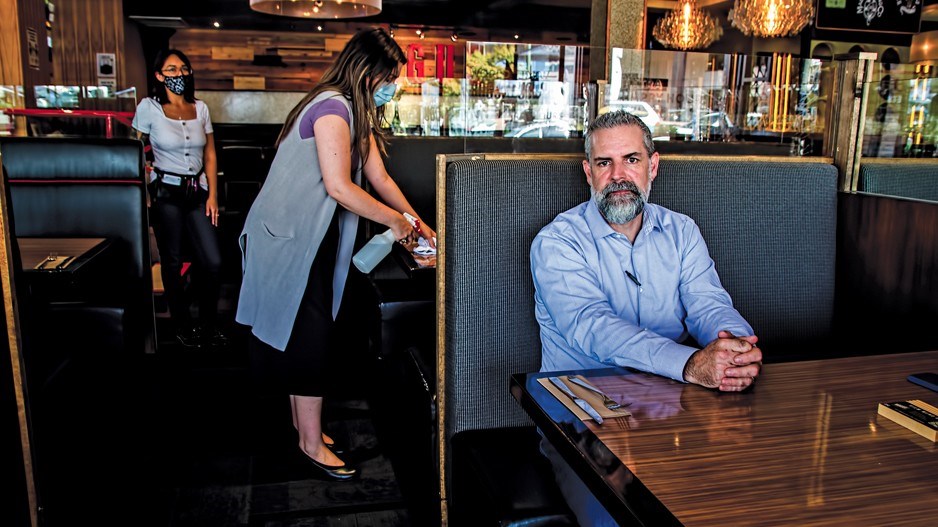Carl McCreath is one of many restaurant executives finding it a challenge to recruit staff.
The president of restaurant operations at Steamworks Brewing Co. and Rogue Kitchen & Wetbar has been hiring as many employees as possible, but he said his ventures remain short-staffed.
B.C.’s minimum wage rose 4.1% on June 1 to $15.20 — the highest rate among provinces and second only to Nunavut in Canada.
The higher wage, which also applies to liquor servers, has been ineffective in luring workers in part because restaurants often already pay more than minimum wage.
McCreath said his establishments pay significantly more than $20 for experienced line cooks and that advertised rates for those skilled workers have risen by about $5 per hour compared with about six months ago.
Other retailers and hospitality-sector employers have also been increasing pay above minimum wage to attract staff.
Lululemon Athletica Inc., for example, said Aug. 26 that all of its global staff would as of Sept. 27 be paid at least $15 or $17 per hour, depending on the role and market. Retail employees are also eligible for Lululemon’s team-based bonus program, which can provide employees with an extra $3 per hour, on average, based on store performance.
One of the challenges for restaurant owners is that fewer people are looking for work in the sector, in part because COVID-19 restrictions on dining in the past year have made the sector less reliable as a source of income, McCreath said.
“There’s a tonne of work visas that usually happen in a typical year – for Australians or the Irish,” he said. “None of those people are in the market right now, so I think there are a lot of contributing factors [to challenges in hiring].”
British Columbia Restaurant and Foodservices Association (BCRFA) president and CEO Ian Tostenson said the sector remains attractive for people who enjoy interacting with customers or making meals.
While boosting hourly wages helps attract staff, there are other ways to boost recruitment, he said.
For example, restaurant managers could be flexible in scheduling hours, and offer benefits, such as medical and dental coverage.
Tostenson added that workers are attracted to employers who pay for added training and career development.
“One option could be an allowance for someone to go and take courses,” he said. “Some restaurants will now say, ‘You can bring your family a couple of times a month and eat at the restaurant at 50% off,’ just to give the staff a little bit of a break.”
The BCRFA has also been involved with the federal government’s development of protocols for the Express Entry program, which enables skilled restaurant workers to immigrate to Canada.
If the BCRFA’s immigration consultant can prove, through a labour market opinion, that there are no Canadians willing or able to take a specific job, an Express Entry immigrant can be hired to fill it, Tostenson said.
He would like the requirement for the labour market opinion to be waived because there is such a shortage of labour at the moment.
Eligible workers from abroad must speak English, Tostenson said. All foreign workers must also have a culinary diploma or hospitality management education in their field of work and at least four to five years’ of experience in the job they are applying for in Canada.
They then need to pass a medical exam and COVID-19 screening.
Pre-pandemic, in 2019, about 1,000 of these workers came to B.C., Tostenson said. That slowed to a trickle in 2020, and so far this year “hundreds” have been able to come to B.C., he said.
The problem, he added, is that many countries that would have been sources for these workers “are just slow in processing their own paperwork, because of COVID-19.”




